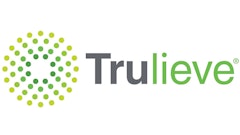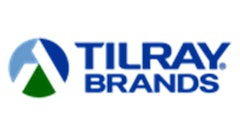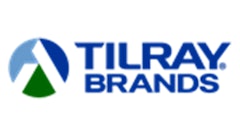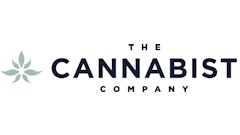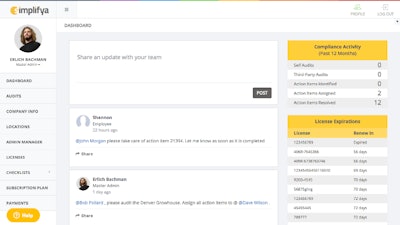
Every cultivator, dispensary and product manufacturer requires a state license to operate and is subject to the state’s regulations, which, according to Simplifya’s Chief Technology Officer Rick Matsumoto, are very lengthy in Colorado’s case. That is why, in November 2016, the company launched its compliance tool in partnership with Colorado law firm Vicente Sederberg.
Simplifya’s software, available on the web, IOS and Android, features a dashboard, which is the homepage of the app and operates much like the news feeds on social media networks such as Facebook and LinkedIn. The dashboard houses notifications, reminders, discussions between employees and the assignment of action items, areas of the business that are non-compliant, and that need to be addressed and brought into compliance. The center column of the dashboard is a scrolling list of these items in chronological order, giving the user a full picture of their compliance effort.
Some of Simplifya’s largest cultivation clients include Native Roots, Maggie’s Farm and Silver Stem Fine Cannabis.
In most cases, Matsumoto said, businesses use Simplifya’s tool to perform self-audits to ensure that they are ready for state audits, which are conducted at random.
“In the case of self-audits, it has the advantage of sort of removing the pressure of having to be totally compliant to everything and allows you to focus on where you have some weakness and where you know you can implement some training or new procedures,” Matsumoto said.
 Simplifya CTO Rick MatsumotoSimplifya CTO Rick Matsumoto
Simplifya CTO Rick MatsumotoSimplifya CTO Rick Matsumoto
Simplifya CTO Rick Matsumoto
Using the dashboard, a manager can schedule a self-audit and assign it to one of his employees. On the day of the audit, the employee can download the checklist, a series of yes/no questions that are dependent on the regulations at the state or local level. The checklist can be saved to a tablet or smartphone to ensure that it is the most updated version and to allow the user to work offline.
Using the checklist, the auditor can walk through the state regulations of a cultivation facility, which largely deal with the seed-to-sale growing, tracking and harvesting process. If any areas are identified as non-compliant, the user can photograph the spot and add a few notes about what needs to be investigated.
“Most audits take anywhere from an hour to two hours, depending on the size of the facility and the number of licenses that they have in place, but the idea is to move them through the audit as quickly as possible,” Matsumoto said.
Data Collection
Once the audit is completed, the user can sync the data with the system and finalize the audit, assigning areas of non-compliance to employees. The employees get notifications of the tasks on the dashboard, and the system will remind them if the action items are unresolved for too long. In the case of a cultivation facility, tasks could be harvesters checking the plant tags to ensure that they are on every plant. Another area that is often cited, Matsumoto said, is surveillance cameras.
At the end of the audit process, the software will create a report, which can be exported in PDF format and used with the business’s bank, insurance company or other third-party auditor.
Matsumoto recommended businesses perform monthly self-audits to ensure compliance with the ever-changing regulations as often as possible. Third-party and legal firms also do auditing on an independent basis using Simplifya’s tool.
“Independent audits are a little all over the board. We like to see people doing that quarterly, but third-party auditors seem to be getting more expensive, so that’s a financial burden to do that too often,” Matsumoto said. Still, he recommends an independent verification at least once per year.
Vicente Sederberg partnered with Simplifya on the compliance too because the law firm saw a need for an automated audit process. A partner at the firm had worked for the Marijuana Enforcement Division (MED) and had completed many audits by hand, making notes and scanning them into computers at the end of the day, which was a lengthy and tedious process. When Vicente Sederberg crossed paths with Simplifya’s CEO Marion Mariathasan, a long-time technology investor, it recognized the opportunity to streamline this process.
Vicente Sederberg particularly helped with the legal content in the app’s development, and as it continued to conduct audits, it used the alpha and beta versions of the software and provided feedback to Simplifya. Today, Jordan Wellington, director of compliance at Vicente Sederberg, continues to act as an adviser, participating in all product strategy and management meetings, providing feedback on the software’s use in the field and reviewing some of the new state regulations.
“We have our own in-house counsel today and our own legal team that produces the overwhelming majority of our legal content, so I would say we use Vicente Sederberg as more of a true kind of advisory partner,” Matsumoto said. “We go to them when we have difficult things to discuss and sort of brainstorm solutions around, but the actual production of our regulatory content is all in-house today.”
Although Simplifya is new to the market and its primary focus has been state and local regulations in Colorado, it is looking to expand into other states and possibly even other countries by the end of the year.
Photos courtesy of Simplifya















